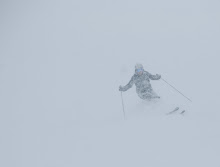I have learned and continue to learn from books. Just as a tree's age can be estimated by counting the concentric circles on its trunk, my learning can be traced to beginnings in books read years ago to lessons from books I am still reading. When I read the following passage from Eckhart Tolle's "The Power of Now", I was reminded of Charles Dicken's "A Christmas Carol":
I was awakened by the chirping of a bird outside the window. I had never heard such a sound before. My eyes were still closed, and I saw the image of precious diamond. Yes, if a diamond could make a sound, this is what it would be like...I recognized the room yet I knew that I had never truly seen it before. Everything was fresh and pristine, as if it had just come into existence. I picked up things, a pencil, an empty bottle, marveling at the beauty and aliveness of it all.
The similarity of Eckhart Tolle's awakening to that of Scrooge is remarkable. Scrooge also sees his familiar surroundings with new eyes and marvels at the lightness of everyday beauty.
Yes! and the bedpost was his own. The bed was his own, the room was his own. Best and happiest of all, the Time before him was his own, to make amends in! "I will live in the Past, the Present, and the Future!" Scrooge repeated, as he scrambled out of bed. "The Spirits of all Three shall strive within me. Oh Jacob Marley! Heaven, and the Christmas Time be praised for this. I say it on my knees, old Jacob, on my knees!..."I don't know what to do!" cried Scrooge, laughing and crying in the same breath; and making a perfect Laocoon of himself with his stockings. "I am as light as a feather, I am as happy as an angel, I am as merry as a schoolboy. I am as giddy as a drunken man. A merry Christmas to everybody! A happy New Year to all the world! Hallo here! Whoop! Hallo!"One book is fiction, written in 1843; the other is non-fiction, written in 1999. I am sure that there are many other stories written before and after that illuminate the same point. Living in the present is the key to life.
I also find parallels from Tolle's book to those in Phillip Pullman's trilogy "His Dark Materials" ( which some argue is based on John Milton's "Paradise Lost"). Tolle describes how gaps in the stream of thought occurs rarely and accidentally for most people but in these moments, there is inner stillness and a subtle but intense joy. Pullman describes the subtle knife that opens a new world from an existing one. The different world is first found with guidance from a cat. Later the world is more deliberately approached for what lays beyond.
As a reader, I have been able to immerse myself in worlds not my own and learn about my own life situation through them. There have been times, though, when I have started to read a book and not been able. At the time, I did not realize the lessons inherent in choosing a book and then being unable to stay present through it. Now, I realize that many of those books contained lessons and analogies about emotional pain which I was not yet ready or willing to work through.
For example, I began to read "Angela's Ashes" by Frank McCourt when it was first published and kept stopping. Several years later, I read the book from start to finish. The difference is that I had done work on my own childhood shrapnel and was present in myself as I read without any over-identification with the main characters. The lesson was not implicit in the book; the lesson was related to me and my situation and the filters with which I read.
And so as I continue my journey as a reader, I strive to be present. However, each book I read, each author whose work I appreciate, has an effect on me. The works that resonate with me are personal. They are not generalizable. Our own individual experiences are why we are drawn to the books that we are, and why there are so many beautiful and meaningful stories in the world. We all have a set of stories that speak to us, and as we find them, we grow.

No comments:
Post a Comment